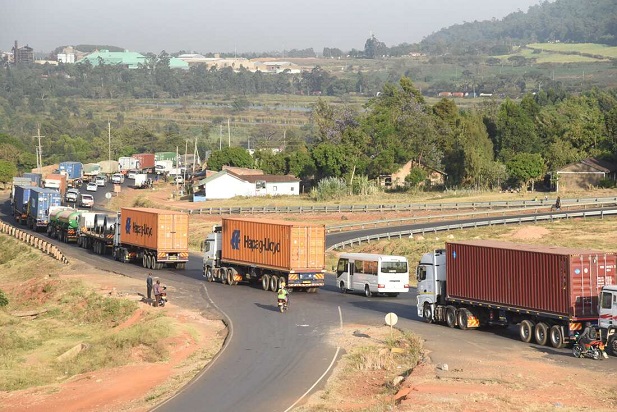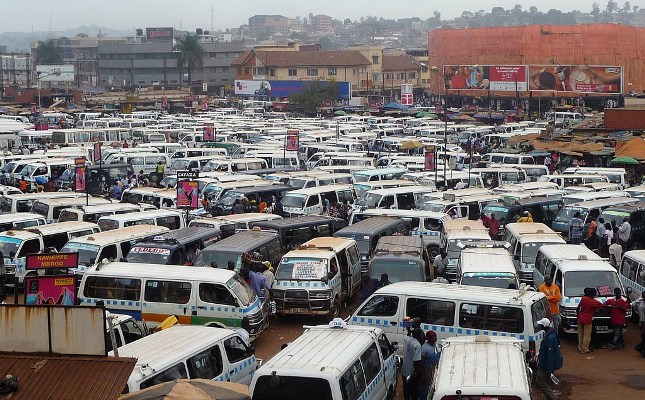Business leaders in the region are optimistic that activity in the East African Community bloc is set to increase by 11% in 2022/23, signaling an end to the adverse effects of the COVID-19 pandemic.
The East African Business Council (EABC) Barometer on Business and Investment in the EAC and Outlook 2022/2023, shows that the declining lethalness of the COVID-19 disease as well as the full re-opening of the regional and global economies has given entrepreneurs new hope.
The EABC Barometer was commissioned with support from the German international development agency, GIZ, to gauge the extent to which the pandemic impact and the feelings of the business community to facilitate private and government planning.
“The pandemic saw closure of borders, airspaces and ports thereby restricting movement of goods and persons. Measures employed by EAC partner states to curb the pandemic such as curfews, closure of certain businesses negatively affected some businesses,” the survey notes.
When the pandemic broke out, Uganda and Rwanda are said to have introduced the strictest measures including almost total shutdowns of the economies, enforced with the help of the army and police.
The UN also declared Uganda’s closure of the education sector, the longest by any country in the world.
These situations in the country meant that that the Ugandan business community were the most pessimistic in the region about the possible recovery of the economies.
Entrepreneurs were asked whether they expect to expand the businesses to other markets within the EAC post the pandemic.
“The sentiments were mixed. Most businesses in Rwanda, South Sudan and Tanzania are optimistic on most of these dimensions but not the other countries. It is notable that businesses in Tanzania stood out with an optimistic view of the outlook for 2022 and 2023,” the study findings show.
Businesses in Uganda were least optimistic about the future when they were asked about improving their businesses, government measures for recovery, better business performance, whether “the worst of COVID-19 is behind us,” recovery from COVID-19 losses and planning to expand market in East Africa.
Of all the six questions, Ugandan answered in the negative, save for the question on expectation of better business.
Only Burundi had four and Kenya three negative answers. In ranking the effects of the measures, respondents who were drawn from the six member countries of the EAC named curfews as having the most negative effect as indicated by 58.2 percent, followed by border closures at 54.4 percent.
These two were followed by the banning of physical meetings (44.5 percent), inter-country movement restrictions (43 percent) and banning of public gatherings which garnered 36.5 percent.
To gauge the effectiveness of the containment measures, respondents were asked to provide thoughts on the measures instituted.
Except businesses in South Sudan, there was a general feeling by businesses that the measures were effective.
Businesses in Rwanda gave the highest approval of measures in the country of 0.4, followed by those in Tanzania with 0.38.
This were followed by Burundi, Uganda and Kenya, while South Sudan’s measures got negative approval.
Comparison among countries on the Cost of Labour shows that except for Rwanda, businesses from the other countries felt the cost of labour has gone up during the recovery period.
Of the challenges businesses faced, Lack of customers was the most prominent, cited by 15 percent of the respondents, followed by lack of finances and falling sales at 13 percent each, while loss of finances as named the main challenge by 12.4 percent.
Others were the laws and regulations introduced, self-doubt and fear among the entrepreneurs, loss of social support, and the problem adjusting to remote working and reduced working hours, among others.
The main challenge of lack of customers was most evident in Rwanda, Kenya and Uganda, according to the survey.
“While overall, lack of customers was the biggest challenge to businesses in the EAC during the pandemic, it was most pronounced in Rwanda, followed by Kenya and Uganda respectively. In Kenya, Uganda and Burundi the biggest challenges were reduced sales volume, unfavourable laws and policies and regulations and inability of meeting contract terms respectively.”
Tanzania survived most of the effects and challenges mainly because the government reversed almost all the measures as soon as it had launched them, including social distancing, closure of sectors, and restriction of movement, though this drew criticism from the international community.
On the other hand, other businesses thrived by taking advantage of the new opportunities provided by the COVID-19 pandemic, like production of protective equipment, sanitizer, medical care, online communication companies, and online shops, among others.
Following the findings of the study, the business community and business support agencies have recommended that the EAC moves faster on resolving outstanding issues that affect trade. These include harmonization of tax regimes across borders, elimination of trade barriers such as tariffs and quotas on cross-border trade, and effective implementation of free movement of persons as per EAC Common Market protocol.
“There needs to be effective implementation of the free movement of person. The implementation is currently ineffective. Harmonisation of policies is lacking. Persons are still restricted in movement despite the provisions of the treaty,” said John Bosco Kalisa, the Executive Director of the EABC.
They are also pushing for the expeditious harmonization of policies especially trade regimes, encouraging business formalization, integration of informal trade into formal channels and trade agreements, as well as a review of regulations or restrictions put in place against COVID-19.
Peter Muramira, the Director Investment Promotion at Uganda Investments Authority, called on the governments and the private sector to enhance efforts in infrastructure development. “The standard gauge railway in Kenya; can it connect completely to Kinshasa from Mombasa so that we now have an SGR connecting in less than five hours from Kinshasa to Mombasa? We want to see that impact free movement of people but also free movement of goods so that business that are operating within all countries of the region are enjoying that lateral movement,” he said.
-URN





